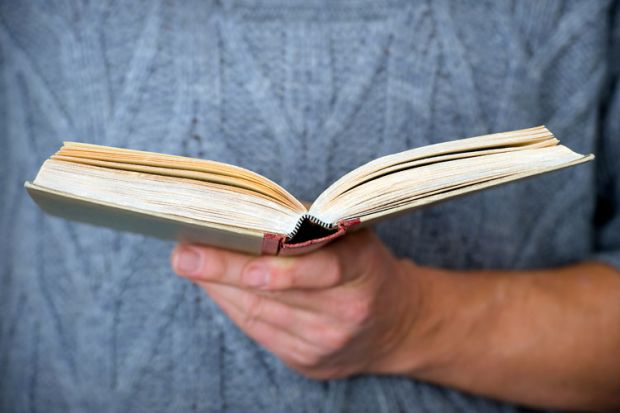Carina Buckley, instructional design manager, Southampton Solent University, is reading Margaret Atwood’s The Blind Assassin (Virago, 2001). “In this astonishing masterpiece, Atwood weaves together the threads of four, perhaps five, stories into one gloriously realised tapestry depicting the lives of Iris Chase and her sister Laura, two sheltered girls who can depend only – but imperfectly – on each other. Many-layered and ripe with detail, this is a book that will break your heart and make you glad for it.”
Peter Catterall, reader in history, University of Westminster, has been reading Evelyn Waugh’s Black Mischief (Penguin, 2000). “This 1932 satire is replete with examples of well-meaning but culturally ill-informed attempts at modernisation of the kind still encountered in aid policy. Waugh satirises Westerners and non-Westerners alike with well-directed barbs, while implying that modernising political institutions without changing political culture simply gives unaccountable elites new means to power. Unfortunately the importance of political culture all too often remains overlooked.”
Stephen Halliday, senior member, Pembroke College, Cambridge, is reading Scott Christianson’s 100 Documents That Changed the World: From Magna Carta to WikiLeaks (Batsford, 2015). “A welcome Christmas present; rather Anglocentric (Magna Carta, Shakespeare, Newton, Darwin, etc). I confess I was surprised to learn that Jean-Baptiste Colbert was influenced by Adam Smith’s The Wealth of Nations – which was published 93 years after Colbert’s death!”
A. W. Purdue, visiting professor of history, Northumbria University, is reading Michel Houellebecq’s Submission (William Heinemann, 2015). “This brilliant novel stars a disillusioned French academic. In the 2022 presidential election, mainstream parties ally themselves with an Islamic party and its leader is elected. France becomes an Islamic state. Offered a well-paid post, François converts to Islam. With uncanny timing, this was published the same month as the attack on Charlie Hebdo’s office; the English translation appeared just before the November atrocities.”
Peter J. Smith, reader in Renaissance literature, Nottingham Trent University, is reading Michael Stolberg’s Uroscopy in Early Modern Europe (Ashgate, 2015). “This fascinating book examines ‘one of the most important practices in the history of Western medicine’. Uroscopy was non-intrusive, cheap and, since the sample was often carried to the uroscopist, it did not require the presence of the possibly non-ambulant patient. Advances in anatomy put paid to the mumbo-jumbo of ‘uromancy’ and ‘piss gazers’, but uro-sceptics’ triumph was gradual: as late as 1937 a certain Dr Pfleiderer was advising ‘his colleagues to continue practising traditional uroscopy alongside chemical analysis’.”
Register to continue
Why register?
- Registration is free and only takes a moment
- Once registered, you can read 3 articles a month
- Sign up for our newsletter
Subscribe
Or subscribe for unlimited access to:
- Unlimited access to news, views, insights & reviews
- Digital editions
- Digital access to THE’s university and college rankings analysis
Already registered or a current subscriber?
